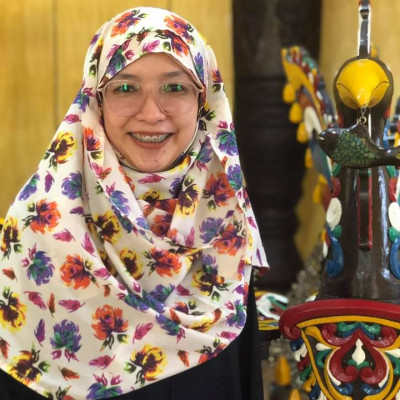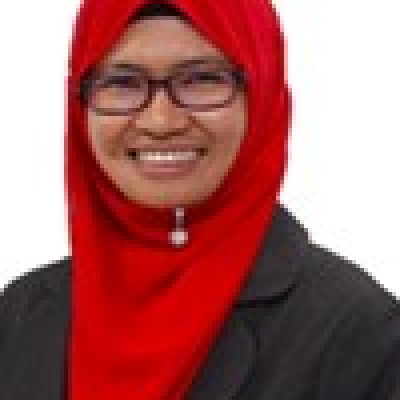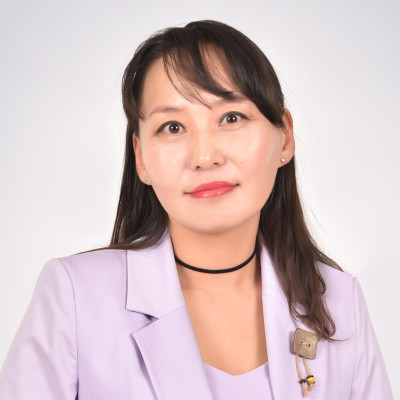Sessions / Research Report/Paper (Asynchronous)
Trial and Error: Learning to Teach with Computers in a 1:1 Program #3585
This case study followed two junior high English teachers for the first year of a 1:1 device program in which each student was given a Chromebook. The aim was to discover how the participants used the computers and their beliefs regarding the pedagogical benefits of the technology through a series of semi-structured interviews. Students’ responses were analyzed with a Likert-scale questionnaire and open-ended questions to determine if how the teachers utilized the devices led to differing perceptions regarding their usefulness, ease of use, and attitudes. Examples of student presentations were examined to ascertain how the teachers’ utilization of the devices influenced produced work. Although teachers varied in the manner, frequency, and purpose with which they employed the Chromebooks, both sets of students responded positively to their implementation, but had differing concerns regarding the technology. With 1:1 devices programs becoming ubiquitous, such case studies can contribute to the collective learning experience.
Guiding Beginning Academic Writers Toward Effectively Integrating Source-Texts in Essays #3588
Due to student needs in EMI higher-education institutions, EAP is being required at lower English proficiency levels. A building-block approach of systematically developing general language proficiency before introducing EAP is not feasible when students need EAP to successfully complete their other courses. Two key skills for EAP are critical reading and effective writing. This research explores the effectiveness of an integrated source reading and writing approach to developing students’ academic writing. Teachers (n=6) at a tourism-focused Institute in Macau were interviewed on their perceptions after one term using integrated reading and writing tasks to teach academic literacy. Results indicated that some teachers felt source texts helped students develop the content and lexical complexity of their essays, but patch writing was apparent. General academic skill development problems with citation format, cohesion, and reading comprehension were more apparent among students of lower English proficiency. Suggestions are provided for using integrated reading and writing tasks to teach EAP.
Teaching Notetaking for Academic Lectures: An Action Research Study #3599
Comprehending and taking notes during academic lectures can be the difference between success and failure at university. Given that taking notes is a complex process in which learners must listen, filter, and record vitally important pieces of information under real-time constraints, it is clear that for language learners studying in their L2, this represents a great challenge. This presentation reports on multiple iterations of an action research study in the Japanese EFL context that looks to replicate the studies of Siegel (2018). Attendees at this session will get an overview of the whole study, and an introduction to the methods used to teach notetaking to learners preparing for entry into EMI/CLIL courses (marking, chunking, verbatim notes, simplifying, free-writing/discussion). The presentation will also introduce the most recent results from the study that suggest that the addition of free-writing and discussion can lead to statistically significant increases in comprehension of lectures as well as improvements in notetaking ability.
Ramayana and Effective Communication #3605
Partner Session (ELTAI)
The session will focus on ways of effective communication through Valmiki Ramayana, a holy book for Indians. It will also talk about the concept of 7Cs through a Godly figure "Ram". This paper will also unravel that 7 Cs concept was given by Valmiki in Ramayana variously from the 5th century BCE to first century BCE not by Professor Scott M Cutlip and Allen H Center from the University of Wisconsin. The paper will also talk about effective ways of communication.
Proposing Mixed Methods research to Understand Study Abroad Experiences of Japanese Students #3610
With Globalization continuing at an ever-increasing pace, the government and universities in Japan are striving to find ways to foster cross- cultural communication in Japanese students. Therefore, many universities offer students the opportunity to participate in Study abroad (SA) programs, hoping that participation will cultivate internationalized human resources. Yet, there remains little research on the efficacy of SA programs with regards to Japanese students, especially after they return to Japan. This presentation proposes a study to explore how participation in an SA program affects Japanese students’ linguistic ability, and if improved linguistic ability affects attitudes towards cross-cultural communication and internationalization. The presentation proposes a sequential exploratory mixed method design consisting of pre-and post-departure qualitative interviews, and quantitative language tests. Through the use of a mixed methods research design, it is hoped that the proposed study methodology can be used by researchers to gain a greater insight into the student’s lived experiences, while also generating quantifiable test data.
Teachers’ Perceptions of Critical Thinking Skills in the EFL Classroom #3612
Trends in academic curricula worldwide have highlighted the need for language learners to develop critical thinking skills for academic and social success. However, there are few studies on what EFL teachers think of critical thinking and how they incorporate it into their teaching. This case study aimed to provide an overview of Taiwanese EFL teachers’ awareness and perceptions of teaching and promoting critical thinking skills. Four experienced EFL teachers participated in this study. Data were collected through semi-structured interviews and classroom observations. The results indicated that these teachers were optimistic about incorporating critical thinking into language teaching and used various strategies to encourage students to think critically. However, teachers also reported that they found it difficult and encountered obstacles due to learners’ language levels and contextual factors. Accordingly, these teachers expressed the need for professional development in order to provide effective instruction that guides their students in critical thinking.
The Translanguaging Practices of Emergent Korean-English Bilingual Children in Korea #3619
There has been a tremendous growth of multicultural families in Korea since the last forty years. In part from this upward projection, this study investigated how Korean-English emergent bilingual children living in Korea conduct translanguaging practices for various purposes. Anglophone fathers’ perceptions of their bilingual children’s language proficiency, the translanguaging practices of Korean-English bilingual families in Korea, and the impact of translanguaging practices on bilingual children’s self-identity development are explored. There were three major findings. First, parents of emergent bilingual children generally value high proficiency in both languages. Second, translanguaging is often practiced for communicative purposes. Finally, translanguaging has an important effect on emergent bilinguals’ self-identity development. Based on the results, implications are drawn with regards to the needs of emergent Korean-English bilingual children and their families in Korea.
Fear of Public Speaking: The Truth Amongst ESl Learners #3620
Public speaking is both a strength and a weakness. When you overcome it, you gain inner strength and self-esteem. But, when you don’t, the experience becomes a great challenge. It also provides training in a variety of personal and social competencies such as self-awareness, self-confidence, and dealing with the fear of communicating. However, Spijck (2011) amplified that almost eighty out of every hundred people experienced public speaking anxiety at a small or large scale. Four out of every ten people rank public speaking fear as one of their top three apex fears, often a fear more dreadful than death. This quantitative research investigated the level of anxiety of Purposive Communication students at Mindanao State University and the factors causing this fear of public speaking. The respondents answered a modified survey questionnaire that identified the following factors namely: expectations and exposure, confidence, lack of vocabulary and lack of preparation.
Poetry-Based Instruction: Teachers' and Students' Perceptions #3621
Using poetry for learning and teaching English has long been a controversial topic. Despite numerous research studies suggesting that poetry boosts students’ self-expression and creativity, many teachers might still feel reluctant to use poetry in their classes. This research aimed to measure teachers’ and students’ perceptions of reading and writing poetry in an English classroom. The research instruments included both surveys and individual interviews that focused not only on reading but also writing simple poems in English. In this presentation, I will discuss the results of the research and outline several practical points on how to effectively use poetry in a classroom. The findings indicate that students were mostly interested in the expressive ability of poetic reading and writing, whereas teachers highlighted the benefits of poetry interpretation and possible drawbacks of poetry usage.
Utilising MAVR in Learning English: An ESL Low Achievers Context #3625
Partner Session (MELTA)
Learning English language for learners with learning difficulties is not an easy process. These students will need learning assistance more than usual in order to give them an attractive and attentive learning environment. This study aims to provide the students with a learning assistance using technological advancement in education. Here, mobile AR technology through an android application is implemented to develop a simulation-based concept learning system on the vocabularies used in the textbook. It will help the students to visualize and use the words throughout the game-based activities. While there are many existing AR mobile apps created for math and sciences, none has focused on the curriculum of learners with learning difficulty or primary school students. In addition, it offers the best and user-friendly augmented reality (AR) experience for classrooms. 45 primary school students in Selangor were recruited in this study, and they were provided access to an AR-game based apps for learning English vocabularies with mobile computing devices. Vocabularies were measured using British Picture Vocabulary Scale II and analysed with one-way repeated measures ANOVA. Analysis showed that there was an increase in the scores and the differences between the levels of the within-subjects factor was significant. This implies that Augmented Reality materials can be used as an interactive tool for special need learners in learning a language. This study will highlight the role of teachers in the implementation process and point out possible directions for more effective application of AR in this field.
Raising Awareness of Collocation in EFL Classrooms: A Mixed-Method Study #3635
This paper reports a mixed methods study using an exploratory design. It aims to record the responses of young adult students in learning English collocations in EFL classrooms when their awareness of the linguistic items was raised through instructional interventions. A total of 116 students whose ages ranged from 16 to 24 years old participated in the research procedure. First, the participants responded to the surveys, then 50 of those students were interviewed for in-depth exploration of their English collocation awareness. A statistical analysis of the survey data, a theme analysis of the interview data, and an interpretation of integrated quantitative/qualitative findings were included in this study’s data analysis scheme. Findings show that as students' awareness of collocation is raised in EFL classrooms, they perform better in learning English collocation and are more confident speakers of English who sound more natural when they practice.
The Use of Internet-Based Paraphrasing Tools in Developing Written Language Complexity #3642
L2 essay writing depends heavily on resources such as inputs from prewriting tasks, teachers, or dictionaries. The availability of Internet-based paraphrasing tools recently has offered learners a rich resource in terms of structures and vocabulary. The study explores how these tools help learners develop lexical and structural complexity in their written language. Totally 10 senior English majors from a college were allocated into two groups to write a 200-to-250-word essay every week during a course of 6 weeks. One group was instructed to use Wordtune – an AI-powered paraphrasing tool to revise their essays in the following week. The result from quantitative data shows no significant difference in lexical diversity while structural complexity of the group with Wordtune has increased slightly over time. Qualitative data from a week-by-week timescale also show how learners utilized and internalized the structures form the tool. Overall, the participants all felt positive about the tool.
Research into Second Language Acquisition: Dissemination of Results and Impact #3645
Partner Session (HAAL)
Research contributes to our world in many different ways, and impact is the benefit research brings to society, outside of academia. In this talk entitled "Research into Second Language Acquisition: Dissemination of Results and Impact," the presenter will first present two research questions and how they set about investigating them. The two research questions are (a) What is the most effective way of teaching business English / workplace English? and (b) How can instruction support the second language development of L2 learners? The presenter will then explain how the research is made accessible to students and suggest what the social impact of their research has been.
Collab in Times of Anxiety #3400
Korean university students rebuild connections in face-to-face team assignments. When there is no escape from people, how can everyone participate comfortably despite students describing anxiety about working with real people instead of Zoom screens? Late 2022 saw institutionally-encouraged face-to-face classes return as the learning norm. However, learners expressed high levels of anxiety regarding face-to-face classes. To cope with this the teacher practitioner conducted regular check-ins regarding student-reported anxiety about learning. Thinking of the face-to-face classroom as a ‘new’ learning environment, the teacher researcher walks through collaborative scaffolding to help learners engage despite discomfort and nervousness. The presenter will share how they re-worked Hmelo-Silver, Chernobilsky, and Jordan’s collaborative learning processes in new learning environments into their physical classroom after two years of online Zoom classrooms.
Hmelo-Silver, C. E., Chernobilsky, E., & Jordan, R. (2008). Understanding collaborative learning processes in new learning environments. Instructional Science, 36(5), 409-430.
Accelerating Feedback and Transmitting It to Students Using Google Workspace #3656
This practically-oriented presentation will explain and demonstrate the use of Google Workspace applications to build a transparent learning environment. It demonstrates an everything-in-one-place Master Sheet for class work, homework, feedback and anything else that might regularly be needed. The use of Google Forms and Sheets to accelerate feedback will briefly be explained and demonstrated thereafter. Finally, I will show an example of a grade book that permits students to monitor their progress in a course and to access and submit incomplete assignments. The outcome of this presentation should be basic knowledge about Google Workspace applications that promote accelerated feedback and transparency, as well as how to build a dynamic spreadsheet that can be shared with students (all the while preserving anonymity). Although the context of this presentation is from my experiences at a university level, the basic premises and the applications that will be demonstrated could readily be used at many levels.
Shared Development: Promoting Shared Lesson Plans to Enhance Professional Development #3402
This action research aims at examining the impact of shared lesson plans on teachers’ professional development. “The shared lesson plans” term refers to collaborative lesson planning which allows teachers to apply the same lesson plans to their teaching practices regardless of their differences. The research was conducted among 10 English teachers in two schools in a rural area of Mongolia for 48 weeks. The data was collected through the interviews, the story of the group chat, and students’ feedback for the teachers. The data were thematically analyzed. The result of the research shows that all 10 teachers benefited from the shared lesson plans in terms of their teaching methods, and professional, academic and personal growth according to the socio-cultural theory of Vygotsky. The findings suggest that novice and reluctant teachers should be more mentored and taken care of throughout the implementation of the shared lesson plans.
A Study on EFL Writers’ Emotional Expressions and Perception #3412
This study interpreted the meanings of writing in English by examining the indescribable feelings or felt sense of EFL writers through their experience and practice of English writing. To investigate the emotions connected to English writing among 10 Japanese EFL learners, this study employed TAE (Thinking at the Edge) methods. Data were collected from 10 TAE worksheets and individual interviews following the seven phases of the TAE procedure (Tokumaru, 2011). The findings indicated that the learners struggled to express themselves in English due to the linguistic differences between Japanese and English, which negatively affected their confidence in writing. Through their experiences of writing in English, the participants emphasized the importance of improving their writing proficiency and building their sense of achievement derived from their written work. This presentation will discuss the potential for using the TAE approach to further explore the emotions involved in L2 writing.
Effects of Receiving Weekly Peer Feedback on L2 Speaking Development #3418
This presentation talks about the effects of receiving weekly peer feedback on speaking development over time. Research has indicated that peer feedback can improve the process and product of language learning (Lee & Tajino, 2008). While teachers make more comments on grammatical features, students generate more comments on content, organization, and vocabulary. A total of 38 students participated in this seven-week study. Each week, all participants narrated and recorded a different four-picture cartoon in English. Participants listened to each other’s recording and gave feedback to improve their partner’s narration After receiving comments, participants narrated the same cartoon again. All narrations over seven weeks were recorded, transcribed, and analysed. Comparing post-test with pre-test, participants improved in syntactic accuracy and fluency. Furthermore, three participants’ speaking output was qualitatively analysed in terms of trajectory changes in complexity, accuracy, and fluency. This presentation concludes with pedagogical implications for integrating peer feedback into TBLT classrooms.
SELVES: Social Emotional Learning Virtual ExchangeS #3444
Social-emotional learning has become the trend umbrella term to blend the knowledge of society with individual emotional intelligence. Every individual is honored in their current community climate. The hand, the heart, and the brain collaborate on a global scale. Virtual exchanges have also fast become a commonality within 21st-century requirements. Real-world project-based learning can release imaginative and creative energy for all involved. Developing deep content knowledge as well as critical thinking, collaboration, creativity, and communication skills, this collaborative online international learning project assisted students in their own social-emotional learning competence. This research paper presentation will showcase how a deeper sense of self-awareness was developed in a sustainable business project collaboration between Thailand and Japan using English as the lingua-franca in a second-grade university setting. Incorporating our full selves in any situation and leading with inquiry in problem-based classroom activities holds great potential for the future of humanity.
Investigation of Diverse Raters' Awareness and Strategy Use in Assessing Summaries #3742
Summary writing assessment concerns persist regarding its reliability, validity, and practicality in educational settings, as evaluating various abilities and skills complicates the process. Therefore, this investigation aimed to examine the rating strategies and awareness of assessing summaries written by Japanese university students, focusing on raters with diverse backgrounds, such as native or non-native English speakers and novices or experts.
The study results show that some items did not provide sufficient reliability among experienced raters, even with adequate training. In contrast, it produced higher reliability among inexperienced ones. Furthermore, rating agreements and score decisions did not differ by raters' native language. Instead, these differed depending on the raters’ experience. However, no significant differences were found among the raters’ strategies during the evaluation.
Zipfian Distribution and Corpus Frequency Data – Assessing Language Authenticity in English Textbooks and Strategies for Vocabulary Retention #3487
Zipfian distribution, applied to the context of linguistics, suggests that the most common 100 words comprise 50% of most written or spoken texts; 1000 covers 80%; and 5000 covers 98%. Scholars such as Nation (2013) suggest language learners should learn words systematically, meaning that it would be most logical to learn the most common words in a Zipfian way. Corpora - large databases of authentic written or spoken text - can assist EFL material creators through vocabulary frequency rankings. However, it is unknown whether textbook writers use corpus data, at least in Japan. Thus, a simple analysis of the word frequency of three government-approved Junior High School textbooks was undertaken using the CANCODE Corpus. The results showed that there was evidence of a frequency-based allocation, with some abnormalities resulting from regional variations and exam focus.
Collaboration Between EAP and Content Teachers in English-Medium Instruction Contexts: Challenges, Perceptions, & Practices #3517
A long-standing issue concerning EAP is the integration of context that resembles the type of academic content students engages in during tertiary education. In English for General Academic Purposes (EGAP), the foci are on the development of academic language, and receptive and productive skills, with generic academic content acting as the disregarded background yet frames students to apply these skill sets. The typical content is heavily orientated towards knowledge which resembles student schema and rarely if ever, reaches the depth demonstrated in mainstream academic subjects. Instead, diverse rhetorical modes are offered since as Stockwell (2006) argues, varying the academic genres encourages learners to produce different interpretations on a level of language and organization. In efforts to bridge the gap between academic writing and academic learning, in the past year, an EMI university in northern Japan amended the advanced research writing course (hereafter, Composition II). The changes involved enrolled students combining Composition II with another content course thereby constructing a pedagogical rationale where English writing structures, strategies and stages for the primary assessment were taught, with the content courses offering authentic disciplinary knowledge, sources and ultimately, content for their Composition II paper. After analysis of the conducted interviews this presentation reports the collaborative practices and challenges between the EAP and content faculty and offers implications for EAP and EMI.
Towards a ‘Leaderful’ Sustainable Development? An Interpretive Phenomenological Analysis of Japanese Education #3522
Japan, a forerunner of Education for Sustainable Development (ESD), positions itself as an advocate for embedding sustainability within pedagogy; yet these efforts remain stifled by a cultural adherence to ‘top-down’ hierarchical practice. Against this background, leaderful classroom pedagogy’s emphasis on collaboration, shared responsibility, and empathy emerges as a viable alternative to top-down leadership models. Accordingly, an Interpretative Phenomenological Analysis was undertaken with Japanese university students attending a global studies program. Through semi-structured interviewing, participants shared and reflected on their lived experiences of leadership and ESD, with findings indicating that hierarchical leadership structures hinder the egalitarian, student-orientated approach deemed prototypical to ESD and, thus, opportunities to inhabit meaningful leadership roles. While leaderful practitioners face considerable challenges if attempting to uproot leadership models firmly ingrained in the teacher-leader student-follower duology, we posit that the relationship between ESD and leaderful classroom pedagogy is mutually beneficial.
Connecting with English Teachers Online: Challenges in Teachers’ Professional Social Media Use #3535
The past decade has witnessed a growing number of studies illustrating how online teacher communities on social media platforms offer a worthwhile space where teachers can easily exchange teaching ideas, ask questions, collaborate with others, and obtain emotional support. Instead of seeing online teacher communities through rose-tinted glasses like most studies in the existing literature, the present study focuses on identifying the drawbacks of teachers’ uses of social media for professional learning purposes. Data were collected via online observations of an online language teacher community and semi-structured interviews with 30 English language teachers who are professionally making using at least one social media platform. The findings are discussed in terms of the challenges associated with teachers’ professional uses of social media, and, ultimately, the ways in which social media might best be incorporated into teachers’ professional learning practice are suggested.
The Effects of a Self-Study Program on Pre-service Teachers’ English Pronunciation #3538
This study examined the results of a one-year self-study program where Japanese pre-service elementary school teachers (52 first-year university students) conducted a self-study activity of their pronunciation skills. They practiced English pronunciation from an assigned textbook outside of class. In order to evaluate the change in the participants’ English proficiency and teaching skills, a survey was conducted before and after the program. Comments in the post-treatment survey suggested that they felt more confident with their pronunciation towards the end of the program. On the other hand, the majority of the participants mentioned that they felt the need for further self-study to improve their pronunciation in actual teaching situations, and also to adjust their English “teacher talk” to the level of their students’ proficiency. It seems that the self-study program provided the participants with an opportunity to reflect on their growth as teachers and recognize areas for further improvement.
Internationalization at Home: Virtual Cultural Exchange Among Korean and US College Students #3544
This is a reflective report on experiences and impact of virtual exchange among Korean and US College students during the pandemic. Educational college students at a public university in the US had opportunities to virtually meet college students in Korea who are learning English across the disciplines at a large national university. Based on the pre-survey result, US educational college students showed their high interests in virtual language and cultural exchange. US students (n=10) and Korean students (n=20) met five times via Zoom for about an hour throughout one semester. The purposes of the project are as follows: 1) Making global friends; 2) Study abroad at home; 3) Developing intercultural communication competence (Deardorff, 2009); 4) Practice the ESL teaching skills; 5) Cultural exchange. The reflections of US students are discussed by sharing positive and negative impact of virtual exchange. At the end, future research plan of virtual exchange is suggested.
L2 Learning Experiences, Emotions, and Their Integration into a Learner's English Life Narrative #3546
This presentation aims to explore how the autobiographical narratives of L2 learning experiences influence, inform and are integrated into the life narrative (McAdams 2018) of Kana, a Japanese learner of English. Grounded in data gathered from a longitudinal study, this presentation focuses on the stories contained and elaborated on when interview data was gathered alongside a visual language learning history representing Kana's pre-university experiences. The autobiographical narratives shared were analysed using Barkhuizen's (2016) short story approach. Based on the assumption that strong emotions facilitate the integration of experiences into a life narrative (Pasupathi et al., 2007), a micro-analysis of emotions was also conducted to understand the dynamic ways in which emotions interact with the formation of a life narrative. The analysis revealed a complex interaction between contextual factors, emotional evaluations of situations and core identity concerns which influenced which autobiographical narratives were integrated into Kana's various English identities.
Preservice Teachers’ Flourishing and Teacher Resilience Through Online Mentoring #3582
This study explores EFL preservice teachers’ perceptions and experiences in online mentoring, expected to promote flourishing and teacher resilience in teacher education. A qualitative research design was used to gain insights into preservice teachers’ experiences of resilience and flourishing. Data from interviews, e-survey questionnaires, and artifacts were collected from 23 preservice teachers majoring in English language education at a medium-sized national university in Korea. Among the participants, six were given in-depth interviews for a better understanding of the conception of flourishing and teacher resilience. Findings reveal that four themes of flourishing were identified by this study, contributing to research on teaching EFL learners and teacher education in TESOL. Moreover, teacher resilience was found in the interviews and e-surveys. This study suggests that more research should be conducted to examine the conception of teacher resilience and the function of flourishing in fostering positive attitudes among EFL preservice teachers to their teaching and learning.
ESP Listening Difficulties and Strategies: A Metaphorical Analysis #3835
This research presented the qualitative data from a project. It aims to investigate the relationship between student concepts of listening difficulties and strategies in ESP classroom (English for specific purposes). 83 fifth-year applied language students from a five-year junior college. Students were required to do five writing assignments based on their comprehension and reflections on the listening activities in class. The writings were carefully examined according to Lakoff and Johnson’s model for analyzing conceptual metaphors. A questionnaire was used to collect students’ perspectives on listening difficulties and strategies. The results of this study indicate that through proper guidance, some students could express their listening difficulties and strategies with metaphors properly and hence their thoughts were deeply understood. Not only students but also the teachers can benefit from knowing students’ ESP learning concepts. Pedagogical guidelines are suggested for ESP teachers, based on the results of the metaphorical analysis and the results of the questionnaire.
The Impact of Gamified Instruction on Japanese English Language Learners' Motivation #3613
The effects of gamified instruction via the Classcraft website on Japanese ELLs' self-reported motivation levels are explored in this study. Classcraft is geared toward increasing ELLs’ motivation to study English by ‘gamifying’ the classroom through game elements like points, rewards, leveling, and teamwork. A2-level (the CEFR equivalent of elementary level) students across four compulsory Listening and Speaking classes at a university in western Japan were chosen for this study. Similar to traditional role-playing video games (RPGs), the participants were required to create and ‘level-up’ online avatars with points they acquired through good in-class behavior and performance. To measure changes in motivation over the course of the semester, the two instructors involved in the study recorded observational data and conducted pre- and post-study surveys. The data suggests that while students generally had a positive outlook on the rewards Classcraft offered, it had a negligible effect on their motivation.



























